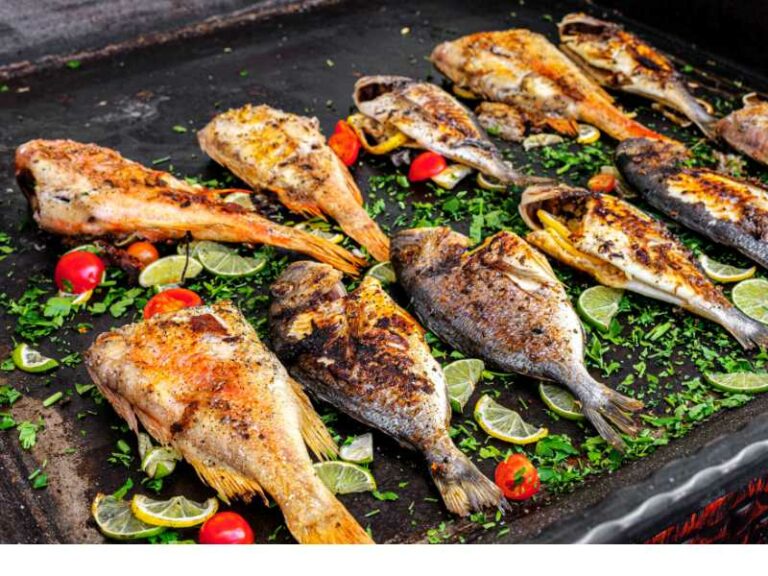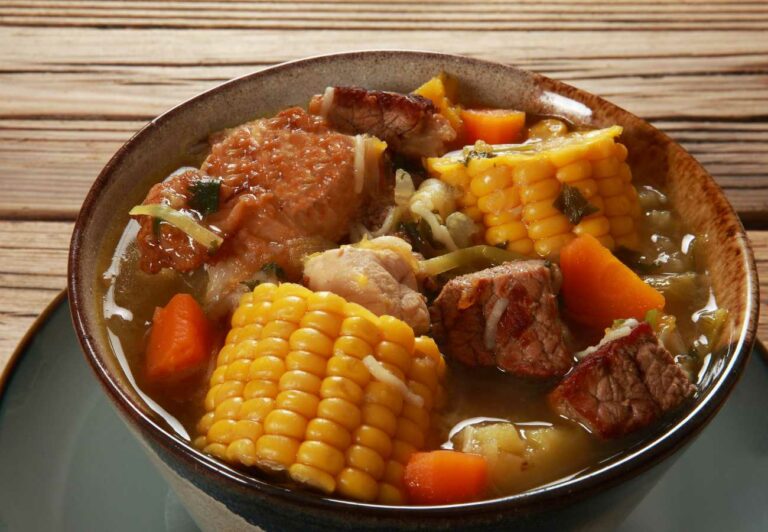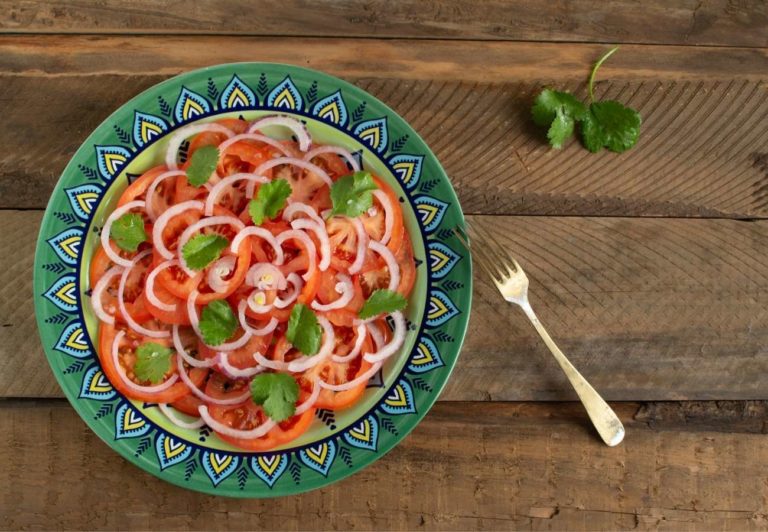Nigerien Food: 10 Traditional Dishes of Niger
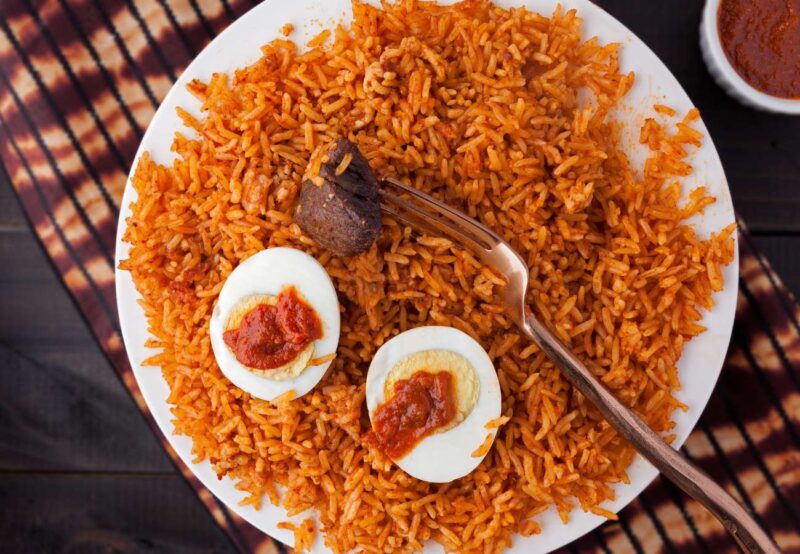
Niger is a country in West Africa bordered by Libya, Chad, Nigeria, Benin, Mali, and Algeria. The country is named after the Niger River and is the second-largest landlocked country in West Africa. More than 80% of its land area is in the Sahara Desert.
Although most of the country is Muslim (about 22 million), Niger also consists of a wide variety of ethnic groups including Hausa, Zarma, Songhay, Tuareg, Fula, Kanuri Manga, Tubu, Arab, Gourmantche, and many more. Nigerien cuisine undoubtedly mirrors the country’s diversity, with many different types of delicacies to try.
The cuisine of Niger is heavily influenced by other traditional African cuisines. Generally, Nigerien food comprises of a starch (rice and millet being the most common) accompanied by a sauce or stew.
Staple ingredients of most Niger dishes include millet, rice, cassava, sorghum, maize and beans. Couscous is typically reserved for special events. Popular snacks consumed in Niger include porridge, wheat dumplings, and beignets. Tea is the most popular beverage.
Jollof Rice
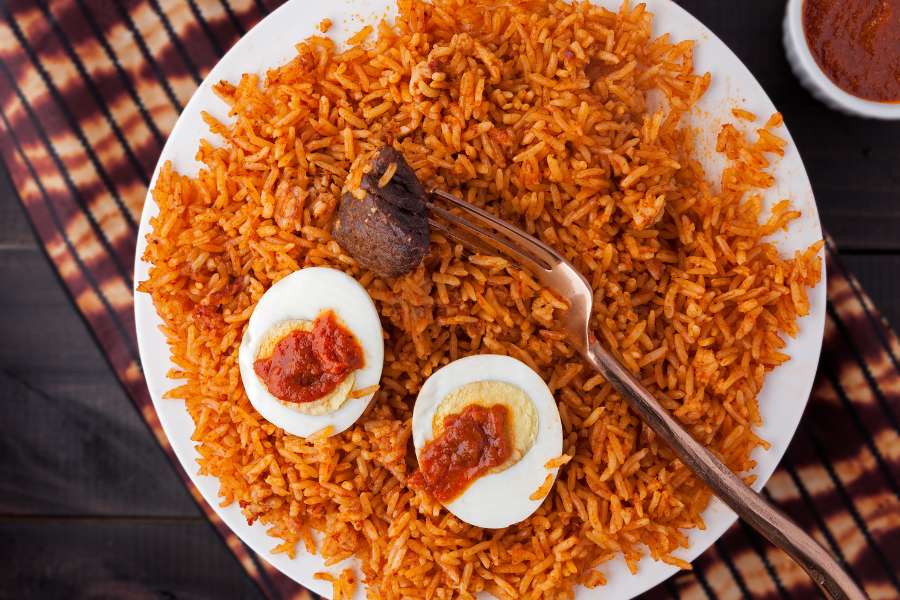
Jollof rice is a dish prepared using long-grain rice cooked with tomatoes, red pepper, garlic, ginger, onions and various other vegetables. You can also add chicken, beef, fish, turkey, or goat meat depending on preference.
The ingredients used and cooking methods tend to differ across the different regions of Niger and throughout Africa.
Considered to be one of the most common dishes in West Africa, jollof rice is made more flavorful by adding traditional spices, salt, seasoning/stock cubes (a mix of flavor enhancers, salt, nutmeg, and herbs), curry powder and dried thyme.
Palm-Nut Soup
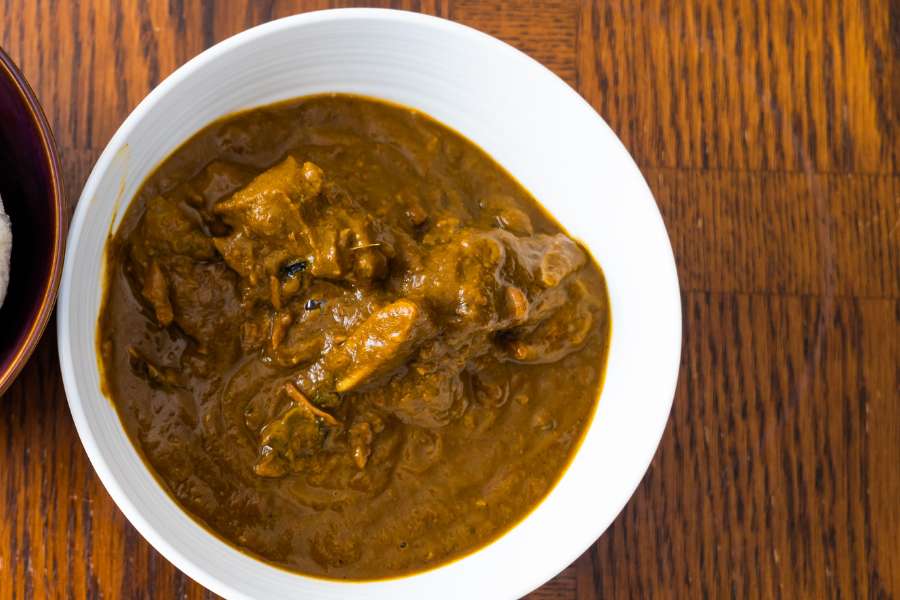
Palm-nut soup, also known as Banga soup, is prepared using the extract of palm fruit or palm fruit concentrate. It also includes smoked fish, chopped spinach, palm fruit and various other ingredients.
It is believed that the Urhobo tribe of Nigeria first introduced this dish to the world. It has a nutty flavor and is often served with rice in many parts of West Africa. Palm-nut soup is considered to be rich in vitamin K, which plays a major role in blood clots.
Dambou Dish
Dambou dish is a famous south-western Nigerien dish which is prepared using cereals (like rice flour or fine hard wheat semolina or millet, wheat or corn couscous) and moringa leaves. The cereal is steamed for approximately 20 to 30 minutes, and then the already boiled moringa leaves are added to it. Other ingredients that are added include onion, chili, salt, broth, peanut, vegetable oil, with meat or fish being served as a side dish.
Dambou is usually cooked during festive occasions (for example, at weddings and outdooring). Considered to be the native to the Zarma and Songhai of Southwestern Niger, this dish is generally accompanied with the Moringa salad.
Djerma
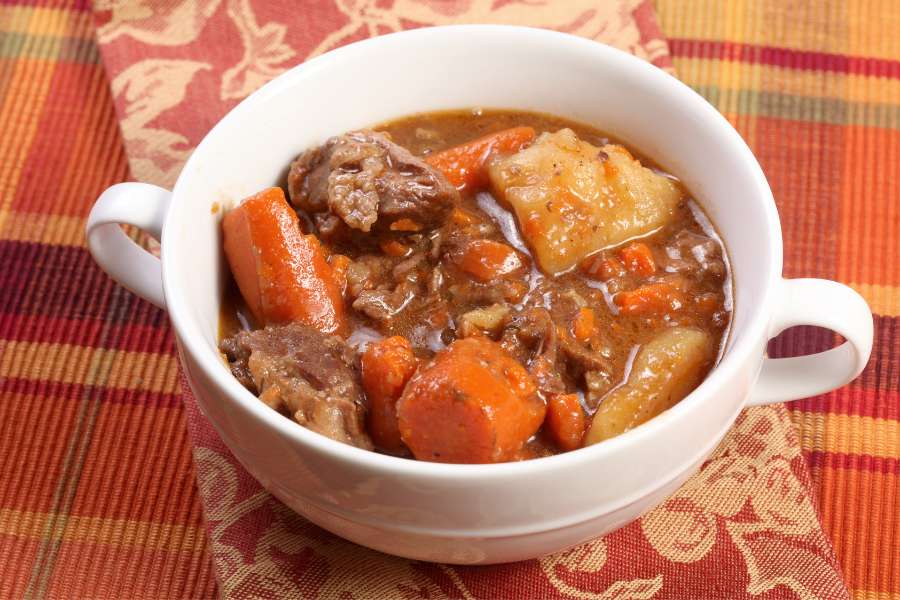
Djerma is a traditional stew prepared using a mixture of chicken, onions, garlic, thyme, carrots, curry powder, peanut butter and bouillon cubes, with chicken being the base ingredient. Some locals also add tomatoes to enhance the flavor.
Considered to be the national dish of Niger, Djerma is traditionally consumed during lunch time. It is often served with rice, and sometimes mustard sauce is also added on top of the dish.
Fari Masa
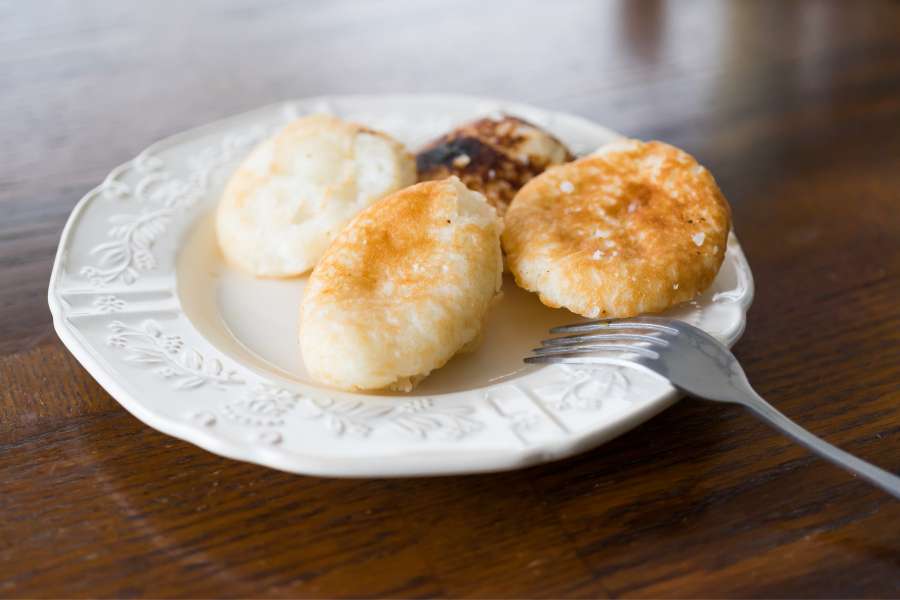
Fari masa is a leavened fried dough prepared using yeast, water, flour, salt, oil, sugar, and beaten eggs. After the frying process is completed, the dough is either covered with sugar (by rolling the dough in it) and various other spices, or it is directly served with squash salsa or tomato salsa.
Consumed as an evening snack in many areas of Niger, fari masa is generally crispy on the outside and kind of spongy and chewy on the inside.
Dounguouri Soko
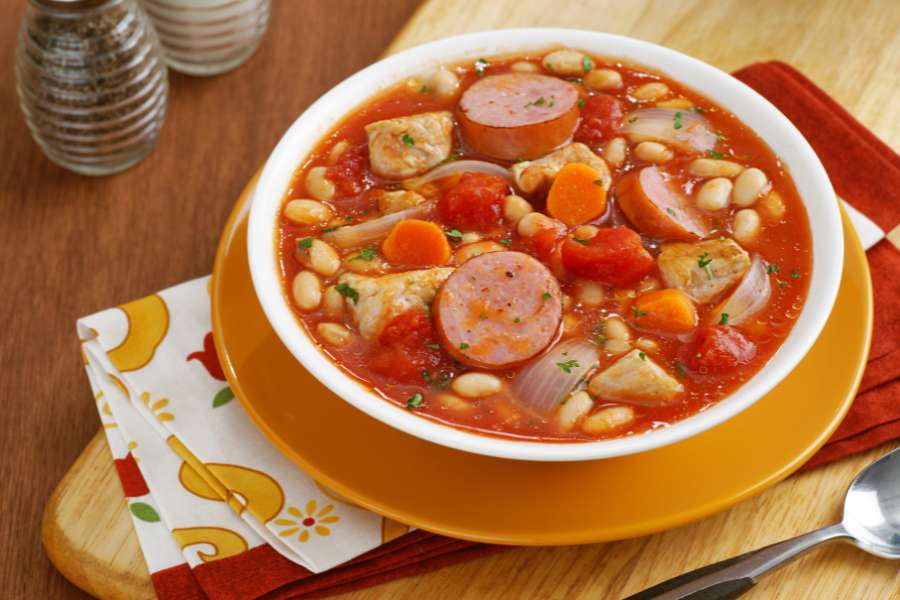
Dounguouri soko is a traditional stew prepared using a combination of lamb, white beans, bell peppers, tomatoes, onions, garlic, oil, tomato paste, salt, and pepper.
Dounguouri soko is considered to be very similar to the traditional French cassoulet, the only difference being that it doesn’t contain any spices. Optionally, natron is also added to the stew, which is basically a salty and bitter mix of baking soda, sodium chloride, and sodium sulfate. It helps to soften the beans and also allows easy digestion.
Camel Meat

Camel meat is a commonly consumed meat in Niger. People prepare various different kinds of dishes using camel meat, such as camel burgers, camel karahi, camel curry and many more.
Camel meat is comparatively lean in nature, and people generally consume medium-rare camel meat. Tasting a lot like coarse beef, it is known to be packed with many important vitamins, especially vitamin B complex. It is also believed to be rich in minerals such as iron, calcium and phosphorus.
Fonio
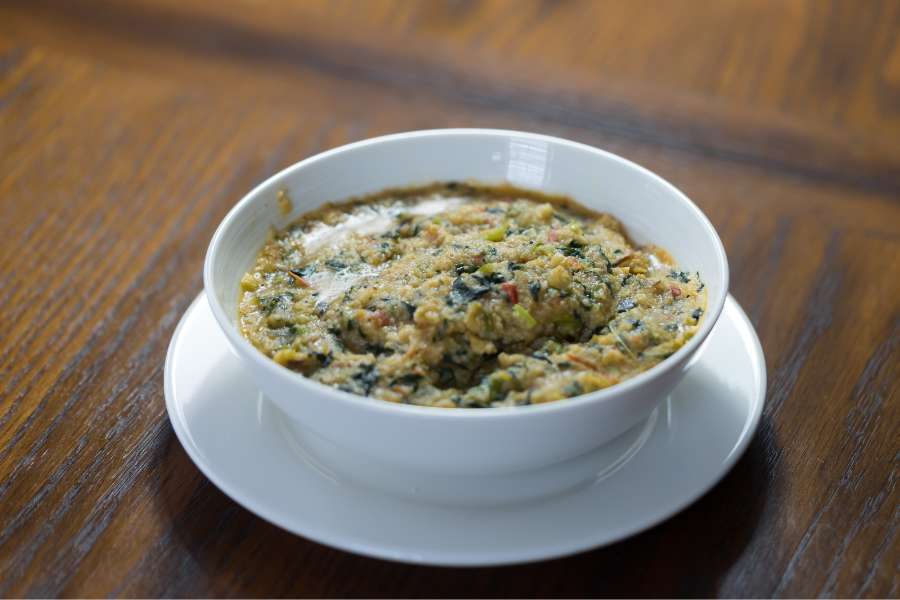
Fonio, also known as hungry rice, is believed to be the continent’s oldest cultivated cereal. Soaked in boiling water for an entire night before cooking, fonio has a nutty flavor and is usually served with couscous.
Dishes prepared using fonio are considered to be a good source of vitamin B. This naturally gluten-free cereal is broadly considered to be West African and it is also a staple for people living in the mountainous areas of countries like Burkina Faso, Guinea, Senegal, Mali, and Nigeria.
Goat Meat Curry
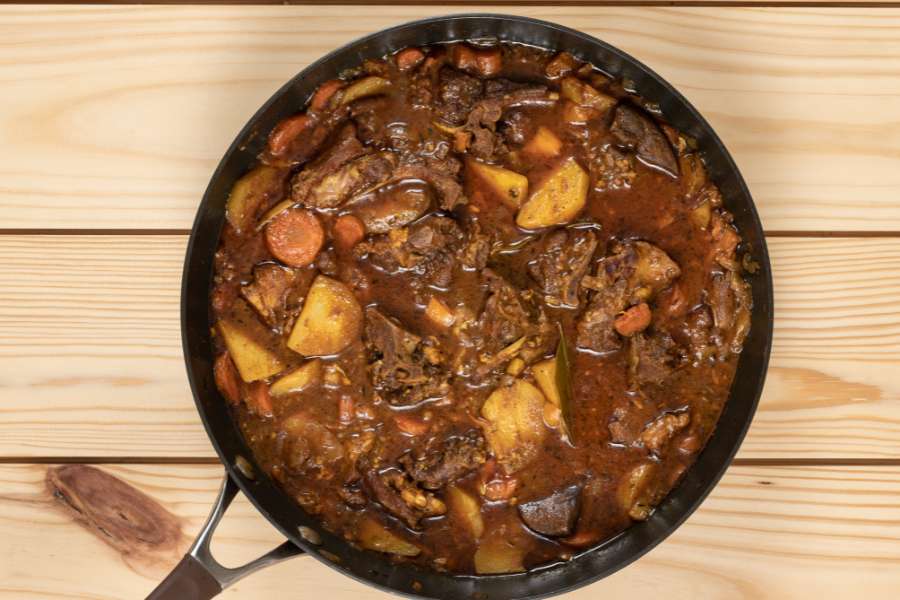
Goat meat curry is prepared using goat meat and goat meat stock. A family favorite dish in Niger, goat meat curry is usually seasoned with local herbs and slow-cooked until the goat meat is tender.
Different kinds of vegetables can be added to the stew and served along with rice, potatoes or yams.
Suya

Suya is a meat dish from West Africa, consisting of thinly sliced beef marinaded in a peanut based spice blend. The beef is threaded onto skewers and cooked over an open flame. Suya is enjoyed as a snack and is popular at barbeques or sold as street food.




